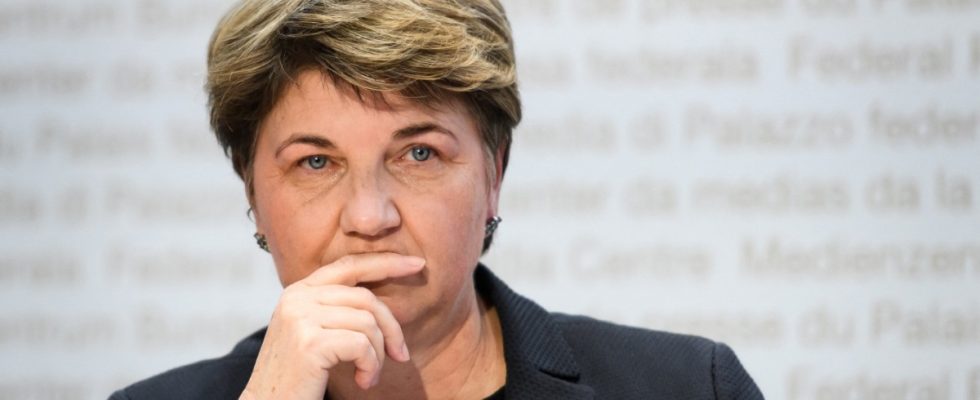The announcement sounds very different from what was last heard from Bern about security policy: Switzerland would like to see more cooperation with its European partners. Namely she wants the “European Sky Shield Initiative” launched by Germany join. Launched in 2022, the initiative, which currently includes 17 European countries, is intended to strengthen air defense in Europe by allowing the countries to better coordinate and pool their corresponding armament procurement.
Swiss Defense Minister Viola Amherd wants to sign a declaration of intent on Friday in Bern together with her counterparts from Germany and Austria Süddeutsche Zeitung confirmed. The whole thing is to take place as part of the annual trilateral meeting on security and defense, to which German Boris Pistorius and Austrian Klaudia Tanner will travel on Thursday.
The announcement from Bern comes as a surprise at first
Pistorius should not be particularly happy with the location of the meeting. The fact that it takes place in Switzerland is due to the annual cycle (last year Germany was the host, next year it will be Austria). But the government in Bern had recently aroused some resentment because it prohibited several European countries from passing on armaments from Switzerland to Ukraine.
Although Bern condemns the Russian war of aggression in Ukraine as a clear violation of international law and provides humanitarian aid, arms deliveries remain tough. The transfer of Swiss-made armaments represents indirect military support for Kiev, so the argument goes – and that violates Switzerland’s neutrality and war material law. According to reports, the anger about this attitude is particularly great in Berlin.
In this mixed situation, the announcement of wanting to take part in European air defense came as a surprise at first. The law of neutrality does not allow neutral states to become members of a defense alliance such as NATO.
Switzerland doesn’t intend to do that either. However, it is already working militarily with NATO in the “Partnership for Peace” program that NATO created for non-members. The Swiss army exchanges experience and know-how there and regularly takes part in exercises. In view of the Ukraine war, the Swiss are aiming for even closer cooperation with NATO and the EU – the government announced this in September 2022 in a security policy situation report detained. “Switzerland must be part of this cooperation in order to strengthen its security in the middle of Europe,” concluded the Federal Council.
Switzerland could not defend itself against an attacker like Russia
But: He does not want his course to be understood as a farewell to neutrality. It is simply about “strengthening one’s own ability to defend oneself” while strictly maintaining neutrality.
Even now, with the European missile defense umbrella, the Defense Ministry in Bern is emphasizing that participation by neutral states is possible “in many areas”. The government in Vienna made a similar statement a few days ago: Austria’s status as a militarily neutral state would not be jeopardized by joining the initiative. According to the announcement, both states want to record their neutrality-related reservations about the “Sky Shield” initiative in an additional declaration on Friday.
The Swiss motive is therefore still its own security interests – not the turning away from neutrality as a foreign policy maxim. It is questionable whether the country can now hope for more understanding from its neighboring countries. Because everyone involved is aware that Switzerland is already benefiting from the defense efforts of its neighbors without making a particularly large contribution. Everyone also knows that, in case of doubt, Switzerland could not defend itself against an aggressor like Russia on its own.
The answer, at least that’s how the western partners see it, must be greater Swiss commitment – neutrality or not. Bern is now ready for the missile defense shield. But arms deliveries were recently rejected again: the Swiss armaments company Ruag wanted to Leopard-1-Sell main battle tanks to Germany, where they would have been repaired and then handed over to Kiev. But the Federal Council vetoed it last week.

